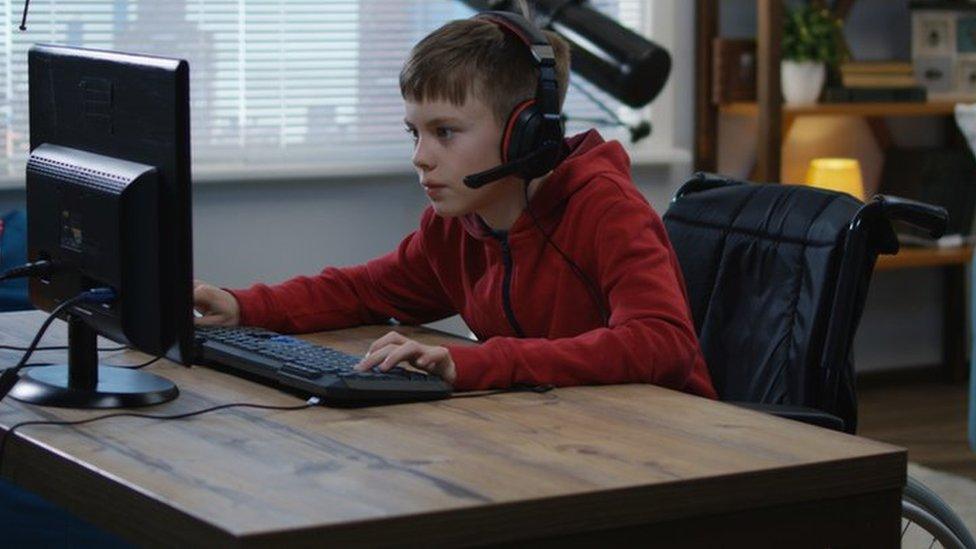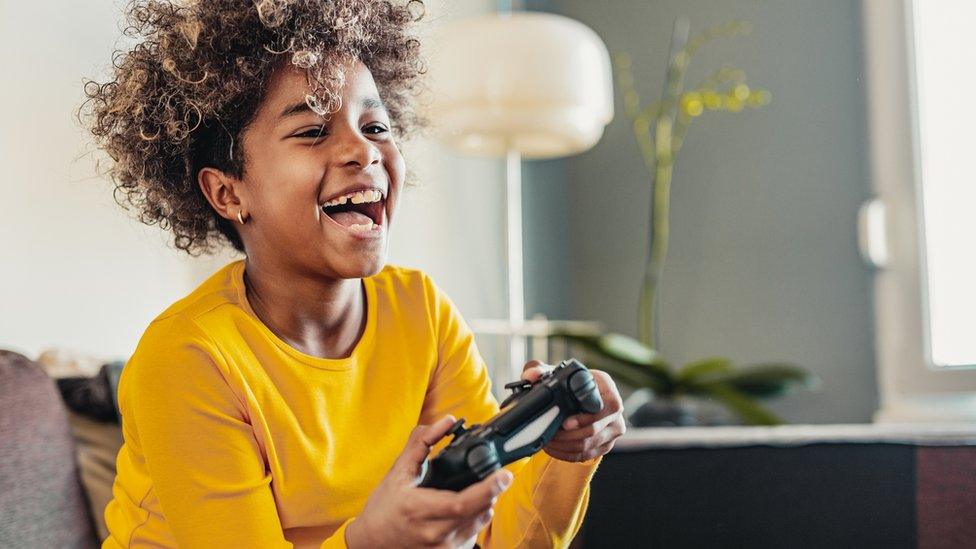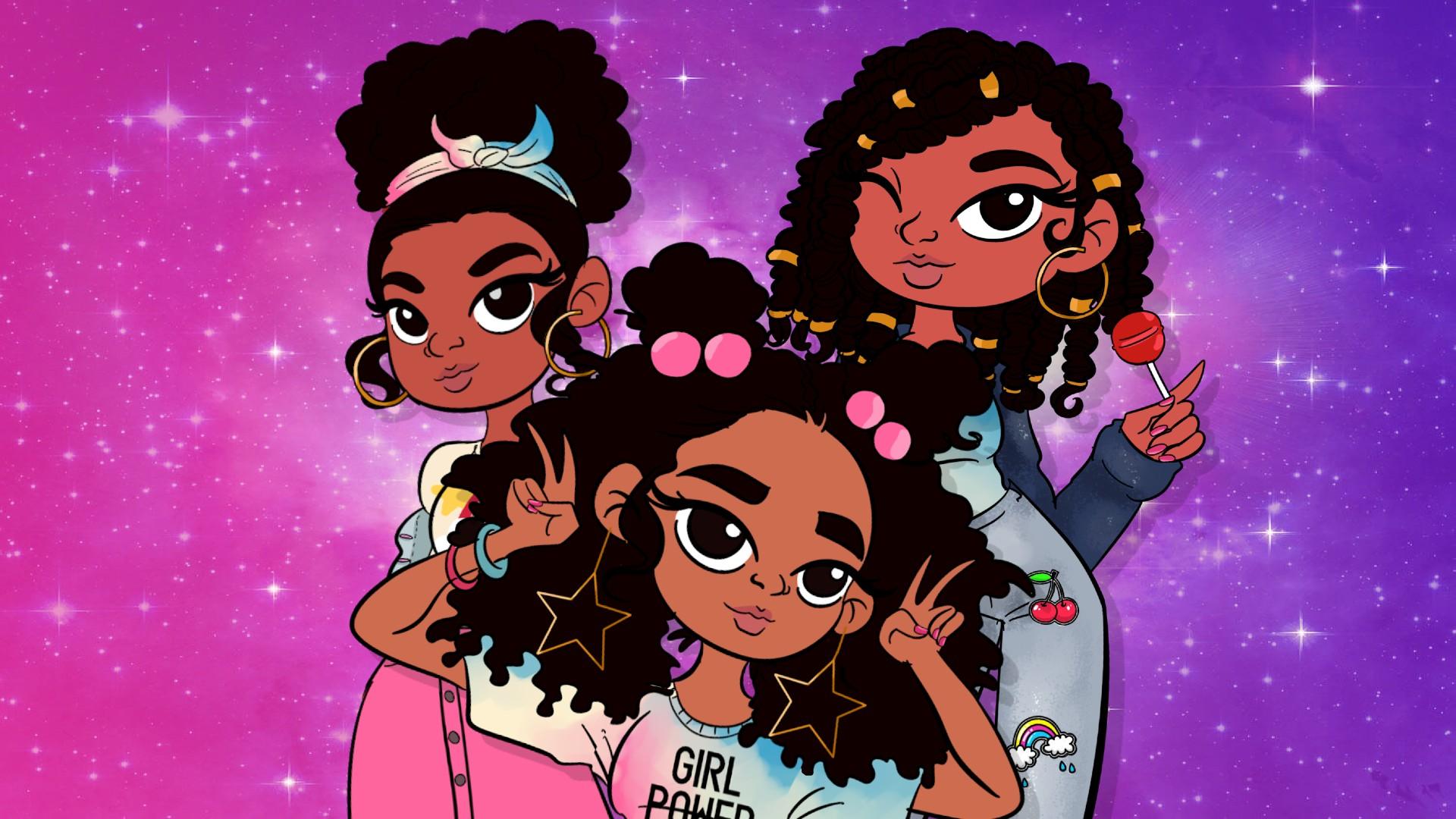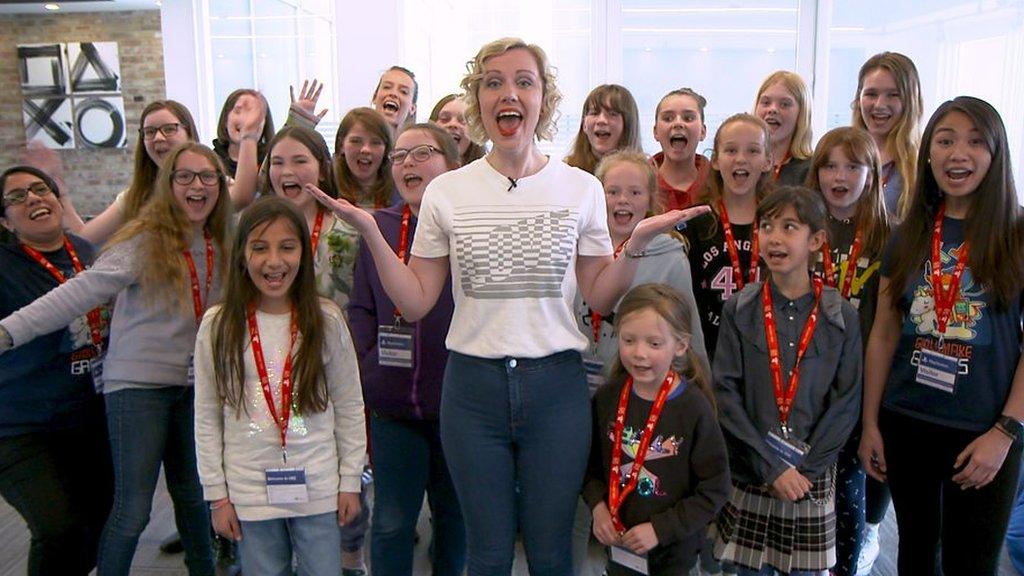Gaming and games: Are they diverse enough?
- Published
- comments
BBC Young Reporters: Representation in gaming
Lots of people enjoy gaming. It's a way to escape from the real world for a bit, have some fun and socialise with friends and family.
However, as more people have started to get into it, it's led some to ask an important question - where's the diversity?
BBC Young Reporters Imogen and Isla from Perth love playing games and lockdown led to them spending more time than usual doing it.
However, they both noticed a lack of representation in the games they enjoyed, something which they wanted to understand more about.
In what ways is the gaming industry lacking diversity?

"I'd love to see story type games where you can have a character with a disability where it doesn't affect the story in any way but it shows that people with disabilities are just normal people," gamer Sam told Imogen and Isla.
A lack of games including characters with disabilities has been highlighted as a big issue, alongside the lack of female and ethnically diverse characters.
"When you look at the actual content of games, it is still primarily around straight white men," said game developer Steven Taarland.
According to statistics from research carried out by Ukie, the organisation which oversees oversees the video game industry in the UK, and The University of Sheffield last year, the number of males and females who play games is equally split, but women make up less than 30% of those actually working in the industry.
This can have a direct impact on the number of women who go on to pursue a career in the gaming industry and the games that are eventually produced.
Diversity in gaming: 'You can't be what you cannot see'
The research also suggests 10% of UK games company staff are from Black, Asian and Minority Ethnic (BAME) backgrounds - which is higher than the national working population and above that in the creative industries overall.
However, people from ethnically diverse backgrounds were found to be in more junior positions, which again can make it more difficult for people to have their voices heard.
What changes are being made to improve representation?

Dr Jo Twist, who is Ukie's CEO, is currently managing the gaming industry's diversity pledge.
"We're getting all the games industries in the UK to sign up to that pledge so that they can recruit and get people who are making the games from different backgrounds because then it's more real, and making sure that they're thinking about the kinds of characters that they include in their games.
"Hopefully, you'll begin to see, and we're already seeing, such a big change."
Do you think there is enough representation in gaming? Let us know in the comments.
- Published9 December 2020

- Published2 October 2019

- Published25 April 2019

